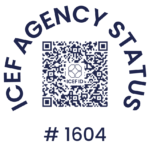With today’s global financial landscape rapidly shaped by AI technology and analytics, it’s more important than ever for professionals to stay ahead of the curve. Have you got what it takes to meet this demand, and develop the skills sought after by employers worldwide?
Our 100% online Global Finance Analytics MSc is specially designed to help you achieve this. Combining core finance principles with cutting-edge analytics, you’ll be challenged to delve into the industry’s most pressing topics: artificial intelligence, investment analysis, big data and machine learning.
Under the guidance of leading academics, you’ll gain practical skills that can be applied to both current and future financial scenarios. The holistic knowledge you acquire will set you up for long-term success, and unlock rewarding career opportunities across the globe as the financial industry evolves. Embark on this transformative journey with us to invest in your future and stay ahead of the game.







